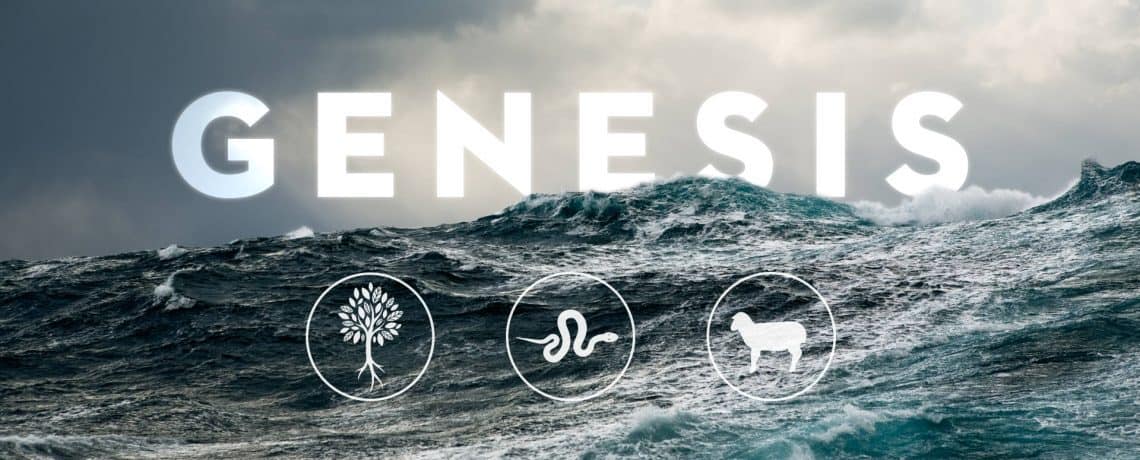The book of Genesis has a groove to it. It runs from poem to song to narrative to poem to song.
The Book of Genesis has a unity to it that fits with the entire Torah (the Pentateuch, or the first 5 books of scripture). There is a definitive strategy laid out, and sometimes this leads to a narrative that isn’t always smooth and uniform. This has led many people to assume that Genesis was written by different authors and is a disjointed mess.
The main character of Genesis is the personal and infinite God, the Creator. Everything that exists is His idea. We find in Genesis that God is transcendent: He is above and beyond all creation. Yet He’s also active in His creation. He interacts and relates to the humans He has created.
The Problem
The first 11 chapters of Genesis lay out the cosmic story of the creation and beginnings of the world. God made the world to be a place of blessing, and He calls it “very good.” He also made humans to rule over that creation and to be the delegated representatives of His blessing. However, mankind rebelled against that plan, provoking the curse and condemnation of God, rather than His blessing. The result is that all of creation is now under a curse.
Yet in the midst of God’s judgment and curse after Adam’s sin in chapter 3, God promises a savior. He promises that that a descendant of the woman, Eve, will reverse the curse by bruising the serpent’s head. The rest of Genesis continually prompts us to ask: “Where is the seed, the descendant who will crush the devil and reverse the curse?”
God’s Solution
In chapter 12, the story of Genesis turns toward one man and one family. God chooses Abraham, through whom he plans to restore his blessing to the whole world. God promises to bless all the families of the earth through Abraham’s offspring. The rest of the book of Genesis and the Old Testament of the Bible is about God’s dealing with the descendants of this one man, the Hebrew people.
As we read Genesis, we are waiting for the seed to show up, this seed who is none other than the Lord Jesus Christ, the Messiah. The story of Genesis doesn’t just lead us to the person and work of Jesus Christ, but it sets the pattern for what we are to expect Jesus the Christ the Messiah to be like.
What you find over and over again in the Bible and in the book of Genesis is that God loves to take weakness, emptiness, and failure and show off His power and His goodness right in the middle of it. It is not merely a book on creation; it’s a book about redemption. God is showing off his power by taking that which is formless and void and giving it shape and fullness; taking that which is nothing and making it something. He takes what is broken and corrupted and brings healing and restoration. This is the story that God is telling.
Far from being disjointed, Genesis is a literary masterpiece that weaves all the scriptures themes together in wonderful unity.
We appreciate The Bible Project for producing these excellent videos to introduce the Bible books, and we have placed them on our web site by permission.

